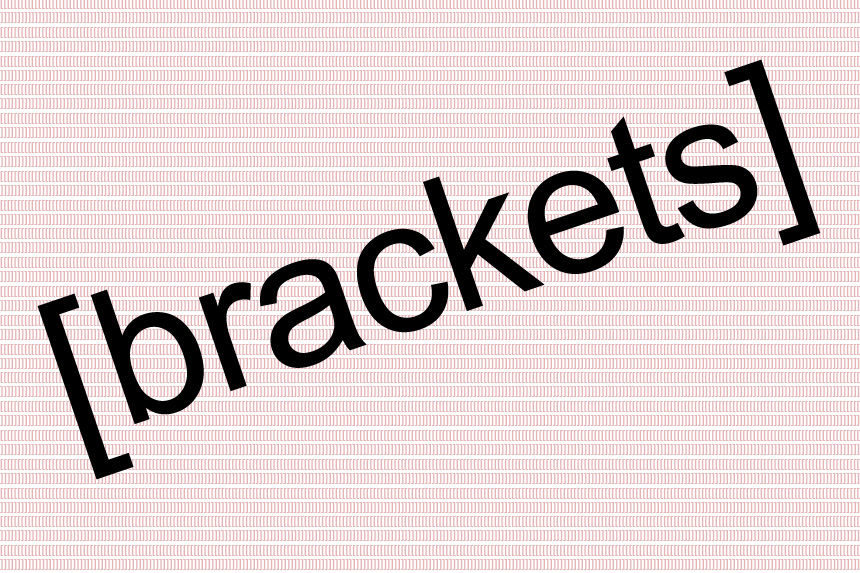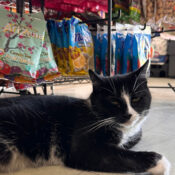Managing editor and logophile Andy Hollandbeck reveals the sometimes surprising roots of common English words and phrases. Remember: Etymology tells us where a word comes from, but not what it means today.
On your computer keyboard, to the right of the letter P, you’ll find a pair of squared-off punctuation marks called brackets that have a number of important uses in both writing (specially academic writing) and modern mathematics. But I’m not here to explain the bracket’s many uses; I’m here to talk about the long trek that name bracket took to describe punctuation. And it starts with an old pair of pants.
The ancient Gauls of Europe wore pants called braca. That might not seem like a meaningful statement today, but to the Romans, pants were a foreign technology. Caesar and his ilk had all sorts of garments; under a tunica (a long, plain shirt) or a palla (a women’s shawl), for example, you might find a mamillare (a strip to secure the mammary glands, i.e., a rudimentary bra) or a subligaculum (a loincloth that served as an undergarment but that might see daylight if you were a laborer, a gladiator, or a grape stomper). And, of course, they had togas of all sorts.
But they didn’t have pants and therefore had no word for them. So when Rome conquered the Gauls and discovered this new fashion, they adopted the Gaulish word for it, braca. Later, this became the French brague.
Weaponry and war-making progressed (if that’s the right word for it) over the centuries, and by the Middle Ages soldiers were wearing metal armor. For many male fighters, the most important part of his armor — for it protected his most tender parts — was what the English called a codpiece. In France, though, they called them braguettes, a word formed by adding the diminutive suffix -ette to brague. A French codpiece is, in a sense, “tiny trousers.”
Royalty and knights with the means sometimes sported braguettes that were ornately designed, highly polished, and comically oversized. Henry VIII is particularly remembered for the profligate protection afforded his, er, royal endowment. (The Tower of London displays his suit of tournament armor from 1540, and the codpiece alone weighs 2 pounds, 9 ounces.)
In the 16th century, people started to notice that the (sometimes ornately designed) architectural supports that hold up roofs or balconies resembled these protectors of privates. Those supports apparently didn’t have a common name at the time, so people began calling them braguettes as well, or among English-speaking architecture aficionados, braggets.
By the 1700s, braggets had become brackets, and they weren’t limited to architectural supports but were also used in all kinds of woodworking. In the mid-1700s we find the first uses of bracket to indicate a punctuation mark, one of either [ or ], probably because of their resemblance to the double-bracket one might use to hang two shelves on a wall and which, like the punctuation, are used in pairs.
The American English tournament bracket, a relatively recent lexical innovation, took its name from its resemblance to a bunch of the punctuation marks crammed together into the shape of a sideways pyramid.
Ironically, before the punctuation marks were called brackets — a word linked to codpieces — they were called crotchets. And yes, crotchets and crotch are etymologically related, but not in the way you’re thinking.
Bonus: Why, I hear you asking through the ether, are codpieces called that? Are fish involved? No: The cod in codpiece isn’t related to the codfish, or to Cape Cod for that matter. In Old English, cod meant “bag, sack,” which by Middle English had been applied euphemistically to the scrotum. So a codpiece was literally the piece that protected a man’s cod.
Featured image: Andy Hollandbeck
Become a Saturday Evening Post member and enjoy unlimited access. Subscribe now



